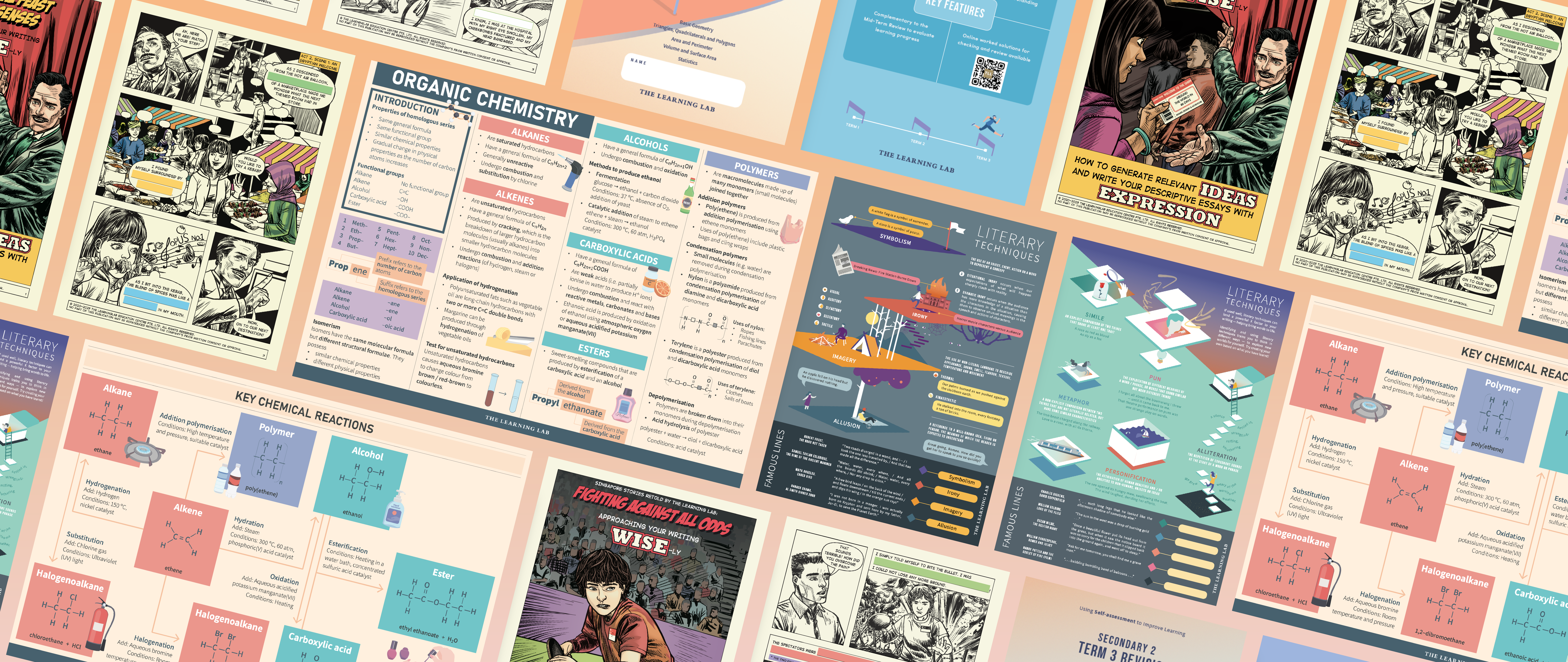Secondary 3 Programmes

Explore New Frontiers of Knowledge

Explore New Frontiers of Knowledge
As students enter upper secondary, they undertake more subjects with a wider scope and deeper content knowledge. To manage the increased academic rigour, our Secondary 3 programmes prepare customised lessons and activities for students to hone their critical thinking skills on concepts, topics and texts that align with the school syllabus.


English
Lesson Duration: 2 hrs
Class Size: 13 students
With a wider range of topics to work on, students' language foundation in both grammar and vocabulary is key to comprehending increasingly complex texts and producing quality writing. Our Secondary 3 English programme will fine-tune our students' language precision so they can write logically and cogently while exposing them to various thematic texts to build their general knowledge and critical perspectives.
View Programme Outline
Language Mastery
Students will reinforce their grammar knowledge and skills by practising grammar drills, editing tasks and sentence reconstruction exercises. By accessing comprehension, summary and critical thinking passages on broad topics relating to current affairs and general knowledge, such as Technology and Science, Global Issues and Social Trends, and Inspirational Figures, students will develop a global perspective and build their content knowledge for use in their essays. Through these varying texts, they will observe how meaning is shaped by sentence structure, tone and punctuation.
Skills and Techniques
Through our weekly lessons, students will display clarity in opinions, maturity of thought and precision in word choice to apply in their writing. They will also hone their summary skills by practising listing relevant summary points from tricky texts and paraphrasing the nuances. Using error analysis and answer precision, students will elevate their comprehension skills. Going through practice tests under simulated exam conditions, students will learn to manage their time more efficiently when answering questions.

Additional Mathematics
Lesson Duration: 2 hrs
Class Size: 13 students
Additional Mathematics (A Maths) requires higher-level thinking and critical analytical skills to understand the complicated formulae in Algebra, Geometry and Trigonometry, using them to solve complex questions. Our Secondary 3 A Maths programme will support and guide students in applying new advanced maths concepts to challenging maths problems so they can master the subject.
View Programme Outline
Content Mastery
Students will pick up new concepts in Geometry such as finding the equation of a circle, linearising non-linear equations and calculating the area of a rectilinear figure in a coordinate plane.
They will also strengthen their algebraic skills by learning new Algebra topics, such as Quadratic Inequalities, Surds, Polynomials, Partial Fractions, Binomial Theorem and Exponential and Logarithmic Functions.
In addition, they will dive deeper into Trigonometry by learning the six trigonometric ratios and using trigonometric functions and graphs to model real-life scenarios.
Upon grasping the new concepts of trigonometric identities, the addition formula, the double-angle formula, and the R formula, students can use them to simplify and solve trigonometric equations.
Skills and Techniques
Students will hone their skills in manipulating symbolic representations of quadratic, cubic, exponential, logarithmic and trigonometric functions.
Using identities and formulae, they can prove two trigonometric expressions are identical. They will also extend their ability to visualise and represent curves and circles defined by functions.
Ultimately, students will acquire the analytical skills to make inferences, draw logical conclusions and evaluate solutions for questions in real-world contexts.

Mathematics
Lesson Duration: 2 hrs
Class Size: 13 students
As a compulsory subject, Secondary 3 Mathematics covers elementary mathematical concepts in greater depth as a natural progression from the lower secondary syllabus. Our Secondary 3 Mathematics programme will not only introduce extended maths concepts, but also teach students to integrate knowledge acquired from lower secondary to apply to questions with upper secondary topics.
View Programme Outline
Content Mastery
Upon revising and expanding knowledge on lower secondary maths topics, we will introduce new topics to follow the Secondary 3 Mathematics syllabus, such as:
- Indices and Standard Form;
- Coordinate Geometry;
- Graphs of Functions and Graphical Solutions;
- Further Trigonometry and Its Applications;
- Circular Measure;
- Area and Volume of Similar Figures and Solids; and
- Geometrical Properties of Circles.
Skills and Techniques
Students will build a strong conceptual understanding of maths to solve complex word problems by integrating knowledge acquired from the lower secondary with upper secondary topics. They will enhance their analytical skills to make inferences, draw logical conclusions and evaluate solutions in real-world contexts while honing their presentation skills and answering techniques.

Biology
Lesson Duration: 2 hrs
Class Size: 13 students
Our Secondary 3 Biology programme is designed to elevate students' biology skills for O-level success. Through engaging lessons and hands-on experiments, we delve deeper into the domain of biology and explore new topics such as Excretion, The Human Eye, Homeostasis and Hormonal Control. Our goal is to inspire a passion for biology and prepare students for the challenges of school assessments.
View Programme Outline
Content Mastery
Students will revisit lower secondary biology topics in greater depth such as Nutrition and Transport in Humans. They will also learn new concepts like Respiration, Excretion and Homeostasis.
Skills and Techniques
Students will pick up strategies for memory retention, visualisation, application and analysis. They will also improve their laboratory techniques with more practice, ensuring the safe execution of experiments. To answer open-ended questions, students will learn to phrase their answers using scientific language and present them in a structured and coherent manner.

Chemistry
Lesson Duration: 2 hrs
Class Size: 13 students
Our Secondary 3 Chemistry programme largely extends from the scientific knowledge and skills students previously acquired in the lower secondary, encouraging them to integrate their knowledge with more advanced topics in the upper secondary to solve higher-order questions. Students will explore key topics such as atomic structure, chemical bonding, reactions, and stoichiometry through engaging lessons and hands-on experiments to foster inquiry and critical thinking.
View Programme Outline
Content Mastery
Students will revisit chemistry topics from lower secondary, such as Atomic Structure and Kinetic Particle Theory, to reinforce their understanding. They will also stretch their chemistry knowledge with new concepts and techniques, such as Mole Concept and Stoichiometry, Oxidation and Reduction, and Qualitative Analysis.
Skills and Techniques
Students will learn to harness chemistry knowledge acquired in the lower secondary to tackle higher-order questions in new topics. They will also develop critical thinking skills and question analysis techniques through exposure to data-based and application questions. In addition, students will hone their experimental skills and laboratory techniques with more hands-on experiments such as titration.

Physics
Lesson Duration: 2 hrs
Class Size: 13 students
Our Secondary 3 Physics programme helps to deepen students' understanding of the fundamental principles that govern our physical world. Students can explore the fascinating world of physics through hands-on experiments and develop strong analytical and problem-solving skills to deconstruct abstract formulas and equations.
View Programme Outline
Content Mastery
Students will learn new topics such as Kinematics, Thermal Properties of Matter, General Wave Properties and Electromagnetic Spectrum.
Skills and Techniques
Students will carry out hands-on experiments involving pendulums and refractions to build experimental skills like data tabulation and graph drawing. They will also develop critical thinking and question analysis skills through data-based and application questions. Additionally, they will learn to choose the appropriate answering techniques to structure and present answers, whether for open-ended calculation or explanation questions.

Hear What They Say About TLL
Because the difference we make is why we do what we do.
Denise Lai
"A determined and kind teacher who never gave up on her students, Ms Shu truly inspired me and all my classmates to work harder and never give up. Without any expectation of recognition, Ms Shu has been our light when we were shrouded in darkness.
I can confidently say that Ms Shu is definitely the best teacher that I have ever met, and I believe that most of my success can be credited to her and TLL.
Once again, I would like to express my gratitude to TLL and my teachers for never giving up on me. Without them, I would never dare to dream of where I am today, and I would never have achieved the results I have today."
Clarence Cheong
"My journey at The Learning Lab through these 9 years has been particularly phenomenal - it has inspired and guided me in preparing solidly for the future. To find success in what you're striving towards, first find joy in it. To me, The Learning Lab's approach to education can be surmised as an irresistible combination of enriching material and passionate teachers. They were inspiring and knowledgeable, delivering a quality of education that I simply could not find elsewhere.
Till this date, I still remember my visceral disappointment when I realized I would miss a Math lesson due to a family holiday, as my teacher had promised to apply geometry and spatial concepts to show us the unimaginable - how to create a hole on a piece of A4 paper large enough for us to walk through.
It is hence this compelling combination that first showed me that learning could be fun, and filled me with palpable excitement whenever I learnt something new that stretched me beyond my peers. Whether it was the intensive exam preparations or the thorough content lectures, it has supported my academic growth and allowed me to achieve my personal bests."
James Lim Chiu Yang
"What sets The Learning Lab apart from the rest is none other than the content and unique programmes delivered. My teachers saw me through the stressful PSLE year and was a pivotal factor in helping me achieve an A* and A for Math and Science respectively.
The hands-on experiments we did during our Science lessons, for example the construction of circuit boards and periscopes, allowed me to understand complex concepts from a refreshing perspective. Gradually, I began looking forward to The Learning Lab lessons as they became the highlight of my week. For English, my teacher had definitely helped me build a strong foundation in grammar and sowed the seeds for the development of my vocabulary. This was facilitated through the secret notebook, (known fondly as the ‘SNB’) where we had to build up our vocabulary bank by recording new words we learnt that week and were subsequently encouraged to use them in our writing so that these words can be transferred from paper to memory. Spending an entire decade at this established institution, I can’t help but recommend it to anyone who’s overwhelmed by the sheer number of choices of tuition programmes these days."
